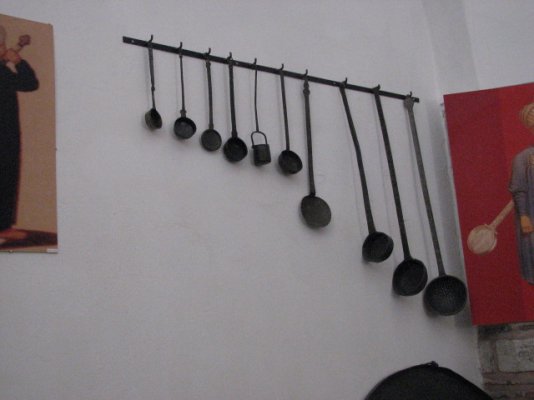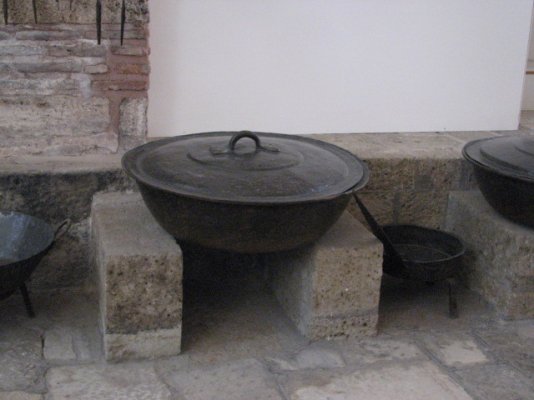GotGarlic
Chef Extraordinaire
This is a wonderful article about the origins and development of the foods of the Sultan's kitchens. It includes descriptions of many of the dishes we've discussed here recently, like rice pilaf and stuffed peppers. This kind of stuff fascinates me.
It also describes how the kitchens of the Topkapi Imperial Palace in Istanbul operated. I visited Turkey in 2001 and we stayed in Istanbul in a house-turned-hotel along the outside wall of the palace. Absolutely gorgeous. I should look for those pictures.
The Imperial Kitchen | Lapham's Quarterly
It also describes how the kitchens of the Topkapi Imperial Palace in Istanbul operated. I visited Turkey in 2001 and we stayed in Istanbul in a house-turned-hotel along the outside wall of the palace. Absolutely gorgeous. I should look for those pictures.
The imperial kitchen quarters extended well beyond the great domed chambers, each of which was devoted to particular specialties, such as the making of sweets, pickles, and cures. There were pantries and storerooms and offices for the team of clerks who kept meticulous records of what was bought, and how much was spent. Hundreds of men, commanded by sixty specialty chefs, lived and worked here, feeding up to ten thousand people a day. The soup, the pilaf, the*helva, the vegetable dishes, meats, breads, pastries were each produced by a master chef, with as many as a hundred apprentices. They had their own dormitories, a fountain, a mosque, and a hamman where they could bathe...
The city lay at the confluence of many currents of trade, drawn across an empire that stretched from the Balkans to Egypt, and from the borders of Georgia to the Adriatic. Egypt was the Ottoman’s granary. Anatolia was their fruit bowl. The mountain pastures of Europe and Asia provided them with sweet mutton and cheese. Every region had its specialty, like the delicate and delicious trout of Lake Ohrid, on the border between Macedonia and Albania, which were carried overland, live, to Topkapi Palace for the sultan’s feasts. The best of everything arrived there in its season—watermelon and green onions from Bursa, figs from the Aegean coast, fruit from the Black Sea. Vegetables came from market gardens snuggled up beneath the ancient Byzantine walls, within living memory, and different districts of the city became famous for certain products, like the clotted cream of Eyüp, or the flaky pastries of Karaköy. Meanwhile, the finest garlic came from İzmit, lemons from Mersin, cheeses in skins from the mountains of Moldavia. This was an imperial palace in a city of imperial appetite, and not for nothing has the palace cookery of Istanbul been defined along with the Chinese and the French as one of the three great food cultures of the world.
The Imperial Kitchen | Lapham's Quarterly
Last edited:


